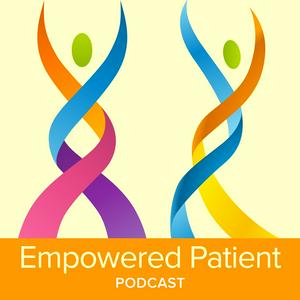Transforming Provider Engagement by Using Comprehensive Data with Christine Lee AnalyticsIQ
Christine Lee, Head of Health Strategy and Partnerships at AnalyticsIQ, focuses on helping healthcare brands and pharmaceutical companies better understand and engage with healthcare providers by taking into account data beyond their professional lives. This data-driven Provider as a Person approach analyzes the healthcare professional's personal characteristics, outside interests, decision-making style, and preferred method of communication. The goal is to foster more meaningful relationships with providers, address provider burnout, and improve patient outcomes. Christine explains, "We're coming into play here in supporting healthcare brands and better understanding the providers as people. As I mentioned, we're a people-based data company. I'd say that in an era where data is abundant and there is no shortage of health data being gathered and analyzed. So, you've got a lot of data assets out there that are coming from clinical trials, your real-world evidence, claims data, your electronic health records, all of which give insight into the aspects of a provider from a clinical setting. Traditionally, healthcare providers have been viewed primarily through the lens of their professional lives, their specialties, their role in patient care, prescription-writing behaviors, and even their affiliations. And these are super important factors. We do see those truly as table stakes, but they paint an incomplete picture." "Providers, like patients, have unique lives, needs, and preferences, which really shape how they interact with the work they do and the brands they seek to engage with. The industry is really recognizing these nuances, which presents a unique opportunity for healthcare brands to acknowledge the complexity of the providers' lives beyond what you could say are their white coat moments, and differentiate their message. And so this can dig into driving more meaningful engagement. And for us here at AnalyticsIQ, we're focused on helping to understand healthcare providers, or HCPs, more broadly, and understanding some of their personal characteristics. So, the data we're bringing to the table to complement all the other data in the ecosystem will be things like considering their work-life balance." #AnalyticsIQ #HealthcareData #HealthcareAnalytics #HealthTech #HCPengagement #PatientExperience #ValueBasedCare #PersonalizedCare #HealthEquity #SDOH #HealthcarePrivacy #PatientData analytics-iq.com Download the transcript here
